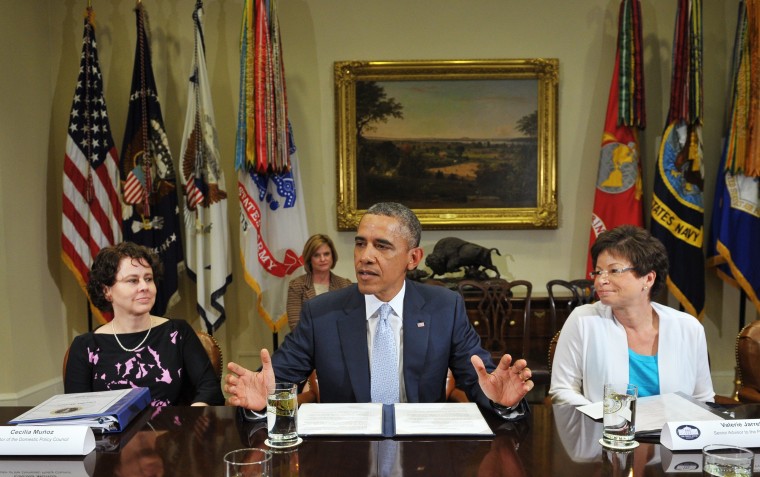Cecilia Muñoz, senior adviser to President Barack Obama, said the failure to get an immigration reform bill through Congress is the "greatest" frustration of the administration and she suggested advocates' focus on getting executive action to protect people from deportation eased pressure on Congress to get it done.
“Folks, I think, pivoted to this notion that the president should do what the president can do right now because we need to protect people right now," Muñoz said. "We still had a window for congressional consideration of immigration reform and much of the advocacy community wasn’t focused on it because they just really wanted the president to take executive action."
With the legislative option at a standstill, Obama used executive authority to allow millions more immigrants here illegally to be shielded from deportation and allowed to work. Those programs have been stymied in court and President-elect Donald Trump has said he would revoke all executive action taken by the president when he is in the White House in January.
"Unfortunately we are now in a situation where folks took the heat off of Congress, Congress didn't do its job. No one can answer the question of whether or not, if we had kept the heat on the House, we would have gotten there," Muñoz said.
Muñoz, Obama's domestic policy director, spoke extensively about Obama's immigration policy on the Center for Migration Studies' podcast CMSOnAir.
The pressure from advocates came as Obama was trying to get Congress to move on immigration reform in 2014. It intensified with advocates and some Latino advocacy groups calling Obama the "deporter-in-chief."
Muñoz, a former vice president with the National Council of La Raza, had worked for years on getting an immigration reform bill through Congress. She also has borne some criticism from advocates over the president's deportation policies and response to the 2016 spike in Central Americans arriving at the U.S. border.
Related: Deporter-in-Chief Label Ups The Pressure For Action From Obama
Those issues leave Obama with a mixed legacy among some Latinos and immigrant advocates. Muñoz said the failure to get immigration reform through Congress is a huge source of frustration. But Muñoz said the administration still accomplished a lot, through streamlining of visas, undertaking modernization of the immigration process and setting a strategy for immigration enforcement based on priorities, which she said were refined over time because initial attempts didn't produce what the agency was hoping for.
Related: Trump Transition Team Filled with Hardline Anti-Immigration Advocates
There has been much anticipation and anxiety over how a Trump administration will deal with immigration. A foundation of his campaign has been labeling Mexicans in the U.S. as rapists and criminals and people who bring drugs here and he has vowed to build a wall on the border and make Mexico pay for it. His transition team's immigration adviser, Kris Kobach, has penned many harsh immigration enforcement policies,such as the Arizona immigration enforcement law, SB1070.
Many young people have been able to stay in the U.S. and work through the 2012 Deferred Action for Childhood Arrivals, or DACA, program Obama authorized. It is in jeopardy of disappearing should Trump repeal the executive action that created it.
Nonetheless, polls continue to show that Americans want to see immigrants here illegally to remain in the country and have a chance at citizenship.
Related: An Immigration Reformer Defends Obama on Deportations
Muñoz said that the current debate around immigration "may be trying to solve a policy problem from 20 years ago" because it is based on the "mythology" of the border.
She said the conversation on immigration is a "fact free zone," since migration from Mexico is now at net zero and the undocumented population is starting to shrink. The problem the Border Patrol faces now is not Mexicans who cross the border illegally, but people from Central America and other places who show up at the border and "raise their hand and say here I am."
"It would be useful for the policy debate to catch up with the reality we are facing," Muñoz said.

